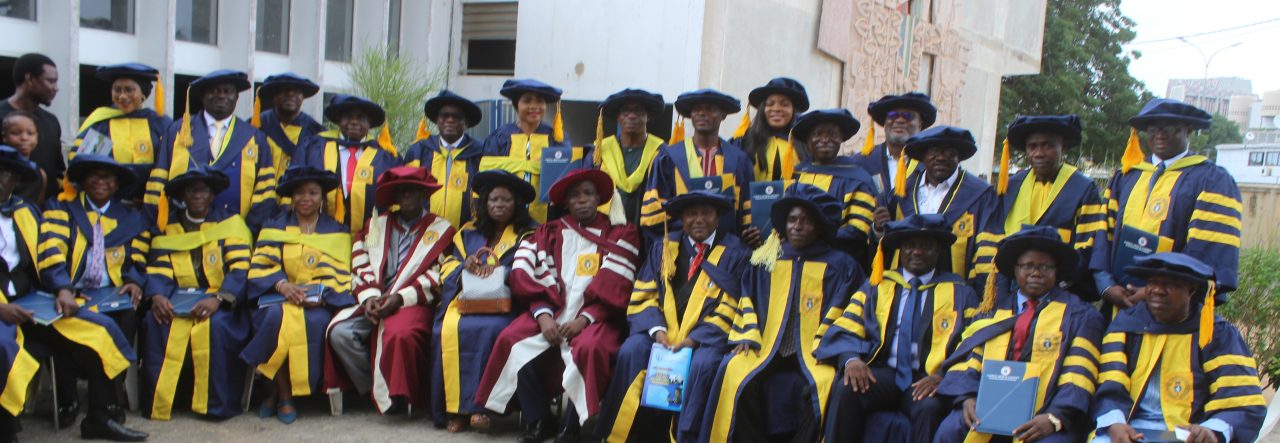The question as to the acceptance of the degrees issued by European-American University in various countries is frequently asked by enquirers. The answer will depend on a number of factors. There are two main aspects of “acceptance” – one being recognition of a degree for the purposes of practising a profession, and the other being recognition of a degree for the purposes of further study.
Regarding professional recognition, the position is that if the profession in question is not regulated, then there is free access and no obligation to apply for the official recognition of foreign qualifications. The acceptability of a given qualification will depend upon the employer. If the profession is regulated (for example medicine, veterinary science, architecture) it will usually be governed by strict rules on the acceptability of qualifications. European-American University does not generally award degrees in any of the regulated professions.
While there is no automatic academic equivalency of credentials from one country to another, academic institutions will have their own policies as to which credentials are accepted for further study. Such acceptability may depend on such factors as comparability of programme content, and upon the status of the awarding institution and its relationship with the state. Note that although many graduates of European-American University have successfully used their degrees as a basis for further study, private degrees such as those awarded by European-American University may not be accepted for further studies at some institutions. They may also not be accepted in government employment.
All degrees issued by the University can be legalized with the Apostille (for countries which are members of the Hague Convention) or Consular Legalization (for non-Hague Convention countries). This is a requirement in certain countries. The University does not provide Apostilles or legalization itself, but can refer graduates to third parties who provide this service.
The UNESCO Regional Conventions are international instruments affirming in principle the acceptability and transferability of credentials between contracting countries. The Lisbon Convention is the regional convention that covers most European countries, but has also been signed by Canada and the USA. The provisions of the Convention do not discriminate as to the geographical origin of degrees.
The “Recommendation on the Recognition of Studies and Qualifications” which was adopted by the General Conference of U.N.E.S.C.O. in 1993 (and thus covers all member states) contains the following provision:
Member States should take all feasible steps within the framework of their national systems and in conformity with their constitutional, legal and regulatory provisions to encourage the competent authorities concerned to give recognition, as defined in paragraph 1(e), to qualifications in higher education that are awarded in the other Member States, with a view to enabling their holders to pursue further studies, training or training for research in their institutions of higher education, subject to all academic admission requirements obtaining for nationals of that State. Member States should also take steps to define procedures for the recognition, as defined in paragraph 1(g), of partial studies carried out in higher education institutions in the other States, for the purpose of the pursuit of higher education. In evaluating a qualification obtained abroad for the purpose of further studies, authorities should take into account the stages of study in the country in which the qualification was obtained, in order to permit people having completed one stage to continue to the next stage when they move to another country. Admission to an institution of higher education for the purpose of pursuing further studies, may, nevertheless, be dependent on other conditions, such as the availability of places, the passing of entrance examinations, or adequate knowledge of the language of instruction.”
The general advice of the University remains as follows: if there are specific parties (employer, university etc.) that you would wish to accept your European-American University degree for any purpose, it is your responsibility to check this before enrolling in the University with the party concerned, and to satisfy yourself that the University’s degree will be suitable for your present and anticipated future needs. Since each student has an individual profile and particular needs in these matters, it is not possible for the University to undertake these enquiries on the student’s behalf.
Completion of any qualification at the University does not guarantee that a graduate will meet any or all the requirements or qualifications for employment in the public or private sectors. Certain employment positions may demand that their employees have completed educational components that do not form part of the University’s academic program. Anyone considering studying at the University with a view to subsequent employment should speak to potential employers before enrolling to determine the respective employer’s hiring criteria.

